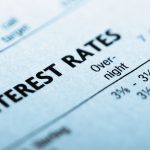Consequences of Not Repaying Your Loans

More and more people fail to pay off their monthly bills and mortgage payments. But what happens when you don’t pay your loan back and which preemptive measurements can you take to avoid getting into financial problems?
It happens a lot of times that people cannot repay their loans. This can be the case because of a disease, an accident, a divorce, the loss of a job, or some other reason. There are other reasons people are unable to repay their loan(s).
Don’t take out too many loans for stuff you don’t need or can’t pay for
It’s essential when taking a loan or borrowing money to think about how much you can repay monthly. Don’t exaggerate while doing so. If you do, you risk years of paying off and living very minimally. A classic rule of thumb is that you loan a maximum of one-third of your family budget monthly. Loads of websites out there let you calculate precisely how much you can borrow with your current income or the combined income of you and your partner or spouse.
Keep in mind that with the purchase of real estate also other costs will incur apart from just paying off the mortgage or loan. Think about the real estate tax, several insurances, and repair and renovation costs for the property.
Contact your bank immediately in case of problems
If there ever is going to be a situation where times are tough, and you cannot repay your mortgage or loan anymore like you usually do, immediately contact your bank. Tell them about your situation and the problem arising. You can try to solve the problem together with your (private) banker or financial advisor and make an agreement. One of the solutions most banks come up with is to increase the loan terms, which decreases the monthly amount of money that has to be repaid. You could also choose or ask your bank to repay only interest payments for a while. Do note that there’s a fee for this, and eventually, you’ll end up paying more, though.
Do the problems last for a long while, and you’re thinking of selling your house? Ask the bank if they agree and if you can stop paying your mortgage or loan off until the home is sold. The bank will subtract what you owe them from the final sales price. The bank is not obligated to agree on such a proposal, by the way.
Ask a debt mediator for help
If you’re in deep financial problems and cannot repay anymore, you might want to contact a debt mediator. There’s multiple debt mediating agencies available in the US. Your mediator will try to find a solution with your bank. You might want to start a debt payment solution procedure. If your creditors don’t agree on such a solution, you can take the case to court, and the judge will make their decision. Please note that the judge could force you to sell your property.
The bank collects
The bank will first send you reminders to pay off as much as possible. If you don’t do this promptly, a process will be started that eventually will end in you having to sell your house. The bank has to comply and follow a set of stringent rules, though, before they can do this. One of these strict rules is that your lender, your bank, in this case, has to remind you within 90 days what the consequences will be if you refrain from paying them back or on time from then on. Also, they need to appoint a notary to sell your house, and you have the chance to defend yourself in court against the bank’s decision first.
Being blacklisted
You eventually risk ending up on the notorious blacklist. People end up on blacklists when they cannot repay their loans on time or only partially within three months after the expiry date. Also, when an owed amount of money cannot be re-payed or only be partially re-payed within one month after a notice of default, you or your family could end up on a blacklist. You get removed from this blacklist one year after your payments are back on track. If you never do this, your defaults get erased after ten years from public records. If you’re on the so-called blacklist, it becomes challenging to get a credit line or loan anywhere in the United States.








